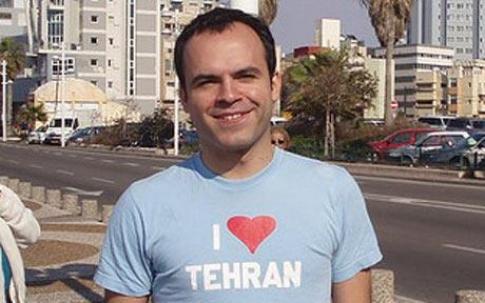Iran's 'blogfather' faces death

Iranian prosecutors have demanded the death penalty for a writer known as the "blogfather" who was put on secret trial earlier this year, according to his family.
By Richard Spencer, Middle East Correspondent
Hossein Derakhshan, 35, who has both Iranian and Canadian nationality, won his nickname after developing a blog platform for Persian characters that was widely copied by online activists and commentators.
While living in Canada and Britain he became known as a defender of Mahmoud Ahmadinejad, Iran's president, against attacks from his many critics in the West. But he also went on a one-man peace mission to Israel, trying to show an Israeli perspective on conflicts in the Middle East to Iranians and also to "humanise" Iranians for his hosts.
He was arrested within weeks of his voluntary return to Iran in 2008. His alleged offences include working with "hostile" governments, propaganda against the Islamic establishment, propaganda in favour of anti-revolutionary groups, and insulting religious sanctities.
An anonymous source told Radio Free Europe that the trial had taken place behind closed doors and that although no sentence had yet been handed down, the prosecutor had sought the death penalty.
His mother, Ozra Kiarashpour, has confirmed that he has been convicted. "The prosecutor has asked for the severest sentence possible to punish Hossein and make an example of him," she said in an interview with a dissident website. "We can't do anything about the judge's ruling except to pray."
A death penalty would be unusual although writers and dissidents have been sentenced to lengthy jail terms. In the last week, two dissident journalists have been sentenced to six years' jail on similar charges, one for an interview he conducted for the BBC Persian service. Exile groups say that capital punishment is increasingly being sought against those accused of "mohareb", or offending God and his prophet.
Mr Derakhshan's family speculates that he might have been victim of a power struggle in the country's ruling conservative faction, given that he was arrested so soon after praising the regime. He had also received a guarantee from the High Council of Iranian Affairs Abroad that he would be safe if he returned.
On his return, he made a Twitter comment that he "loved being in Iran" and was "generally impressed". Previously, he had defended Iran's right to develop nuclear weapons in self-defence, saying he would defend the country against any military assault.
But he also offended the authorities by tackling pro-reform issues, and on a previous visit home had been arrested and made to apologise for telling readers in Iran how to get round internet censorship. Telegraph




 del.icio.us
del.icio.us Digg
Digg

Post your comment